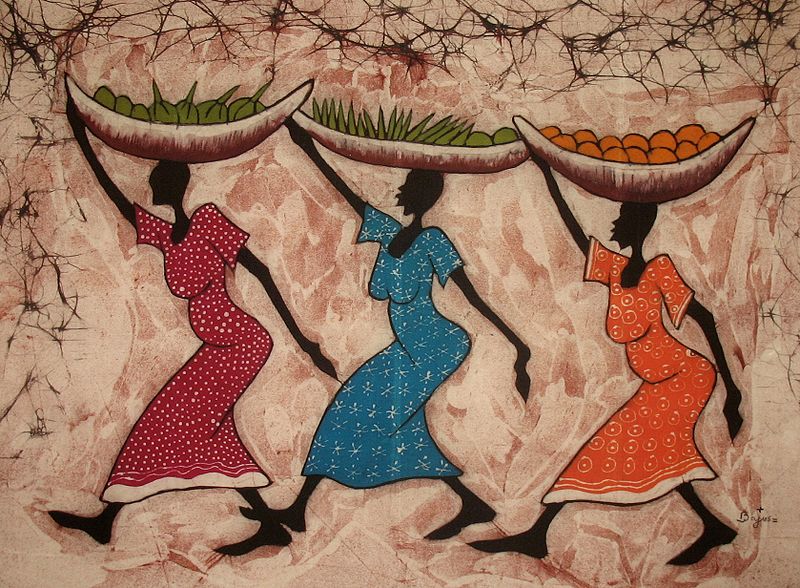
The world needs leaders, in whatever area of expertise individuals choose to pursue. Attending two Canadian Red Cross workshops, intending to train internal Red Cross volunteers to become facilitators, plunged me into becoming more engaged in world affairs. I had previously spoken about this in another post.
It was quite intimidating, as I tried to become more comfortable and open with the other participants, I asked one of those general questions, “Where do you go to school?” Which instead of helping me ease myself into the situation of interacting with strangers, made me feel helplessly nervous. The question I should have asked was, “What school did you go to?” Most of the other participants in this workshop had already graduated university and had completed grad school. I had barely experienced the freedom and responsibilities of turning 18 when I was thrust into a world of adults seasoned and experienced with world affairs. However, I did revel in the fact that my fellow participants were fresh and first time volunteers with the Canadian Red Cross, blanking at the other question I had raised; “What have you done with the Red Cross?” It was a handle I proudly latched onto during the workshop, as I was able to demonstrate that, youth didn’t translate into inexperience. So I was very happy to share my involvement with the Red Cross in exchange of worldly adventures from Uganda to India.

I wondered myself as I first burst into the workshop, what was a facilitator? A facilitator takes its roots from the French word “facile,” which means easy. A facilitator consciously assists a group to successfully achieve a goal they are working towards. Essentially, facilitators act as a guide, asking questions to explore ideas and topics, and may inform the group of a certain topic. However, the facilitator wants to maximize group participation, drawing out ideas and empowering participants to voice their own opinions in open group discussions. Definitely conducting a different role than solely a teacher or allowing discussions to take on the atmosphere of a lecture.
1) Be aware of you, another and the environment

Great physical activities cemented many useful tips of stepping into the role as a facilitator. With the group stepping into a circle formation, we tossed around a hacky sack, which soon became many, displaying three key responsibilities of being a facilitator. First of all, we were required to lobby the hacky sacks to our designated personnel, making it as easy as we could them to catch it. Also, as we were throwing to each other in an established order, we had to be aware of who was throwing us a hackysack and to whom we had to throw to next. With at least 12 people, each with their own hackysack, hackysacks frequently crossed each other’s arcs and violently crashed into each other, which of course, we strive to prevent. So it was a really great to show us an example of being aware of the environment, our role in the circle and another person’s role in a circle.
2) Learning to keep a connection and recognizing when to lead and follow

Bamboo sticks were used to demonstrate balance within a discussion. Holding two thin bamboo stick by the tip of the index finger in each hand with another partner, we pushed and moved our bamboo sticks in sync with our partners, to find a “solid” connection. This was actually more difficult than it sounds. As the fingers weave to keep up with each partner’s movements, my partner and I had to figure out who was leading and who was following non-verbally. This resulted in many sticks that clattered onto the floor. In a group discussion, it was very important for the facilitation leader to realize when it was appropriate to lead, but also recognize a participant’s urge to lead and for the facilitation leader to follow.
3) Listen to a person as if you are “watching their movie”
Listening exercises were predictably demonstrated, as we all had to uncomfortably spend two minutes sitting in front of a partner and spill to them the story of our life. Except all they could do was just nod and smile. No interrupting or commenting. Extremely uncomfortable, I realized that I had told my partner a lot more than I had intended than if she had interrupted. I had realized that our culture doesn’t allow for breaths and silences past one second for the fear of another voice filling that space. This had demonstrated that to be listening to another, we were encouraged to become focused and absorbed, as if “watching another person’s movie.” I’m pretty sure in a movie theatre, you wouldn’t be asking the cinema staff to adjust the project or rewind the movie, and as silly as that sounds, we often act as such when listening to others.

Sharp eyes, small mouth, big ears, warm heart and solid feet. The presence of a facilitator was extremely important. Encouraging others with non-threatening questions, drawing out ideas and exploring them, tracking ideas and summarizing, balancing ideas between negative and positive views, and making space for others were other aspects of facilitating we learned to use to effectively maximize participation and the exploration of ideas in a discussion.
I’m not too sure when I’ll have some courage to step up and become a facilitation leader, but it was great to have a very open and supportive environment cheering on my nervous practice attempt at facilitating them (where I learned a few extra seconds of silence allows people to think!) I really hope I can do more humanitarian issues projects training sessions like these, and hopefully become skilled enough to travel internationally and become a delegate for the Red Cross! To me, there’s nothing more satisfying than when you are able to help out the world, because when I do, I get warm butterflies and develop a contagious smile that doesn’t go away.
